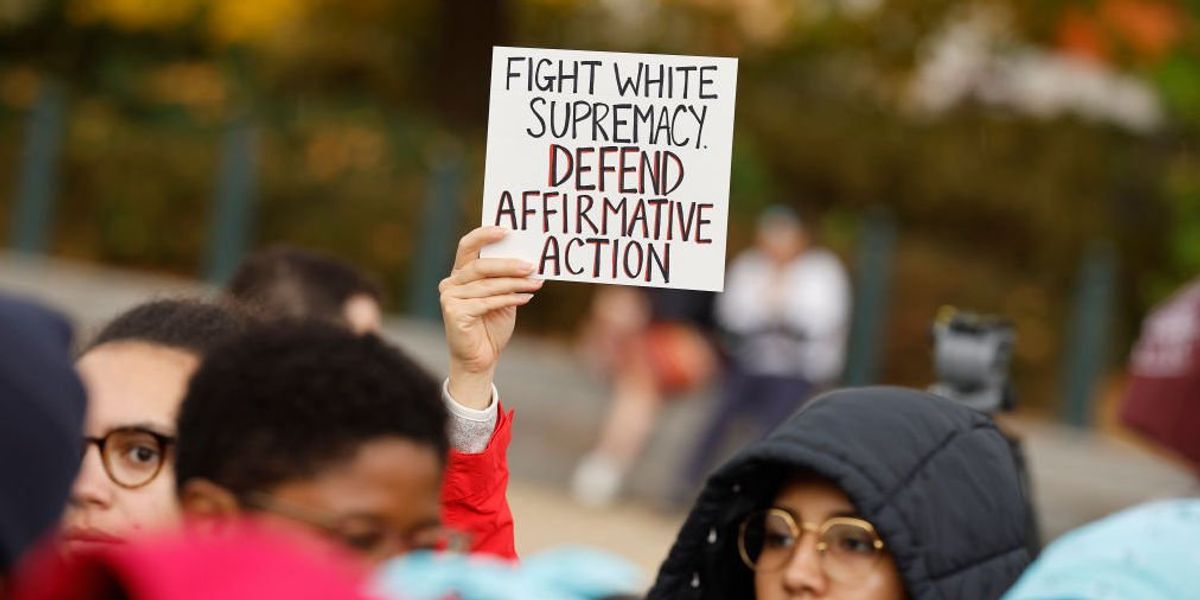



The majority of Americans approve of the Supreme Court's decision striking down affirmative action policies at Harvard and the University of North Carolina.
According to a new ABC News/Ipsos poll, 52% of Americans approve of the decision while just 32% disapprove — an overwhelming 20-point difference. The other 16% of respondents said they were unsure of how they felt about the decision.
Among political and demographic lines, the poll found:
Meanwhile, the ABC News/Ipsos poll found that the affirmative action ruling was the most popular ruling of the three major decisions handed down last week.
A slim majority approved of the decision to strike down President Joe Biden's student loan forgiveness plan (45% to 40%) and the ruling that "a website designer can deny services to same-sex customers seeking a wedding website" (43% to 42%).
However, the phrasing of the latter case was misleading because the Supreme Court did not rule that a business can "deny services to same-sex customers." Rather, the ruling said the government cannot compel individuals to make "expressive" speech that they disagree with.
Unsurprisingly, the poll also found that a vast majority of Democrats (76%) believe the Supreme Court decides cases based on their partisan views.
That figure is most likely driven by the fact that the court, in recent high-profile cases, has ruled against progressive and liberal interests. But their view is disputed by how rarely the six justices appointed by Republican presidents agreed in 6-3 decisions in the 2022-2023 court term. It happened in just 8% of cases.
— (@)
In a decision handed down last Thursday, the Supreme Court ruled that admission policies at Harvard and UNC-Chapel Hill violated the Equal Protection Clause of the 14th Amendment. The decision effectively outlaws race-based — not diversity-conscious — admission policies.
Justice Brett Kavanaugh, in a concurring opinion, argued convincingly that the Supreme Court, when it green-lit affirmative action decades ago, always intended for race-conscious policies to sunset — not exist indefinitely.
For about 50 years, many institutions of
higher education have employed race-based affirmative
action programs. In the abstract, it might have been
debatable how long those race-based admissions programs
could continue under the “temporary matter”/“limited in
time” equal protection principle recognized and applied by
this Court. But in
2003, the [Supreme] Court applied that temporal equal protection principle and resolved the debate: The Court
declared that race-based affirmative action in higher
education could continue for another generation, and only
for another generation, at least absent something
unexpected.
As I have explained,
the Court’s pronouncement of a 25-year period—as both an
extension of and an outer limit to race-based affirmative
action in higher education—formed an important part of
the carefully constructed [Grutter v. Bollinger] decision. I would abide by
that temporal limit rather than discarding it, as today’s
dissents would do.
Like Blaze News? Bypass the censors, sign up for our newsletters, and get stories like this direct to your inbox. Sign up here!
